MELBOURNE TRAM SYSTEM - REPORT

o0o0o electric trams o0o0o
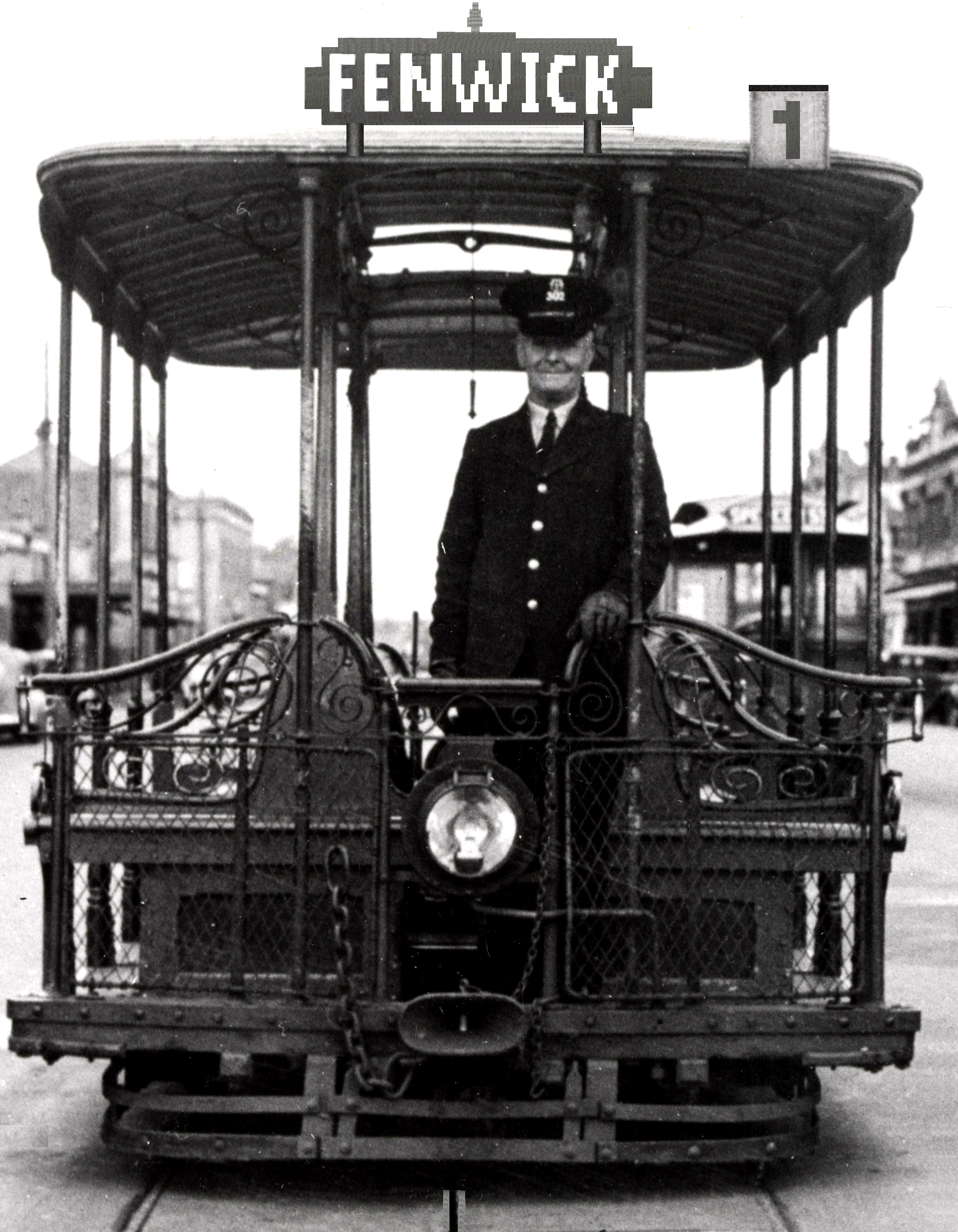
nowadays in almost all cities of the world trams are electric trams. how did this come about?
the crucial inventors were fyodor pirotsky (russia) in 1880 & 1883 and werner von siemens (germany) in 1881.
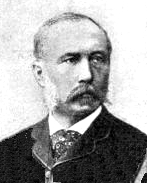
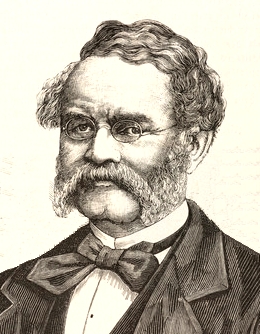
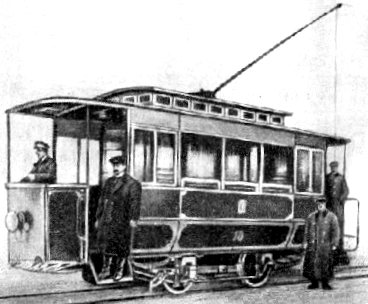
![]()
it seems that at least siemens realized what an enormous impact this invention would have.
o0o0o melbourne - tram history o0o0o
there is a lot to outline- - because I live in melbourne since 1995 - - and use trams all the time.
furthermore:
melbournes tram system is the largest in the world, plus, many think "the trams are melbourne's character".
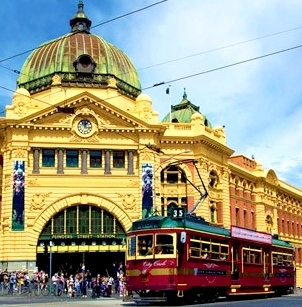
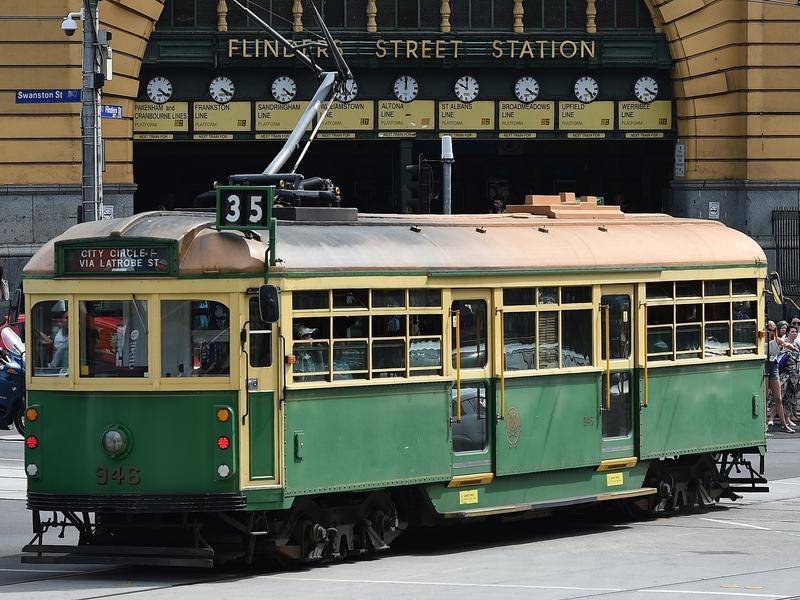
above you see traditional trams in front of melbourne's iconic flinders street railway station.
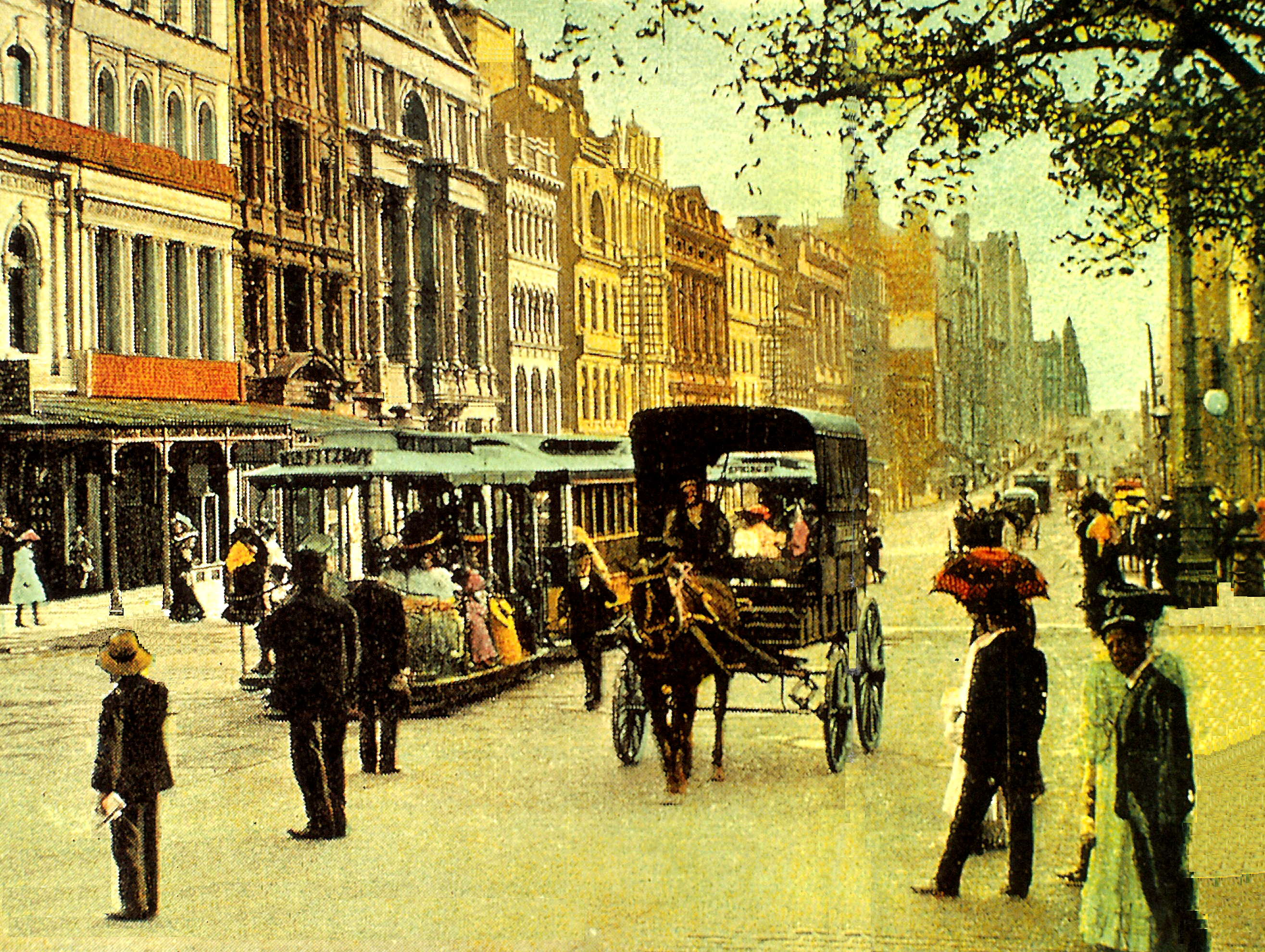
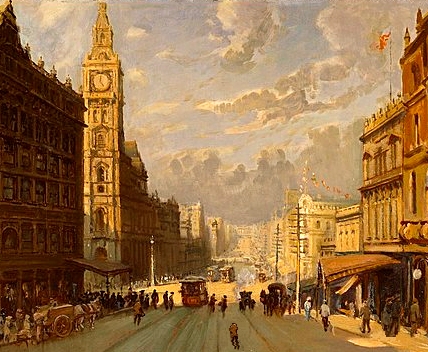
melbournians got their first trams in 1884. these were horse trams, in several suburbs. that ended 1923.
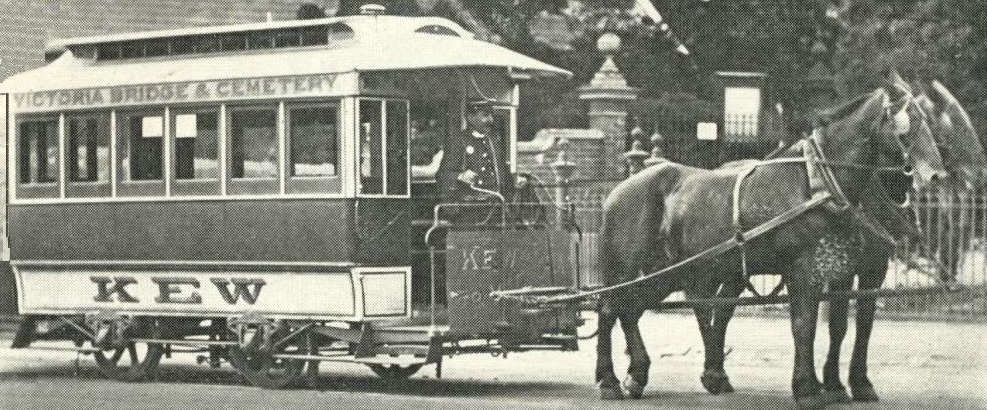
at the same time, in 1885, cable-hauled trams were set up. this became a large network; one line lasted until 1940.
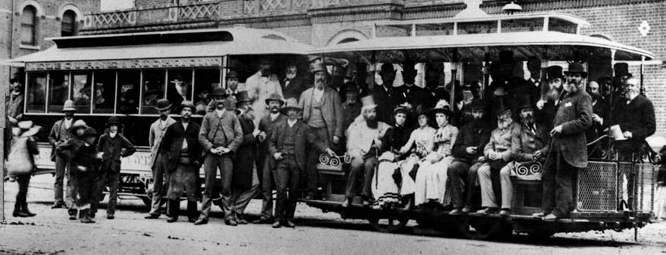

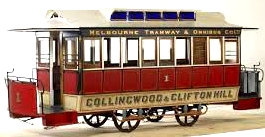
next phase - - the first electric tram was installed, in 1889. this lasted only 8 years - but in 1906 several ventures followed.
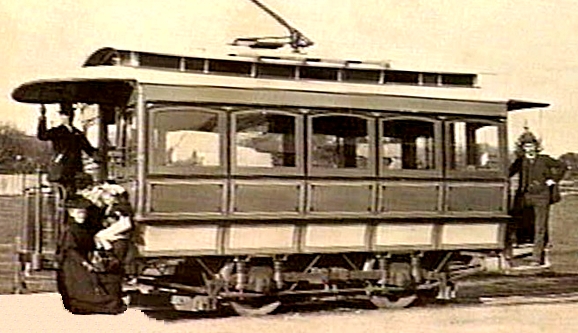
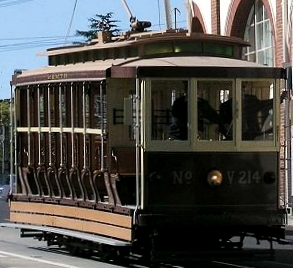
then step by step horse trams and cable trams lines were converted into electric trams, the last ones in 1940 - so, electric trams were now completely dominating.
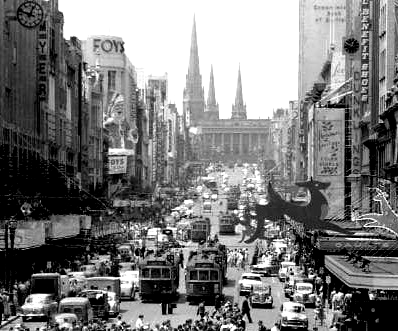
in 1923 a new tram type was introduced - the "w" class, painted in a green-and-yellow design - eventually becoming iconic.
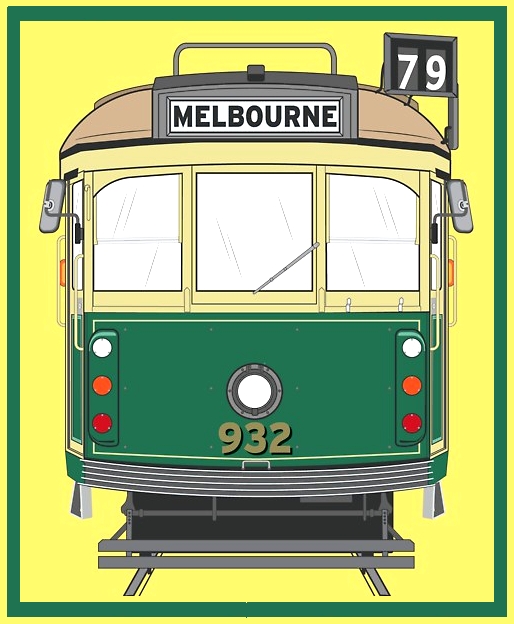
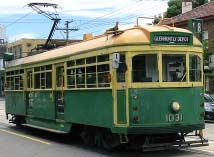
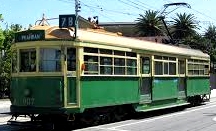

some of the "w" trams are still in service. an extra-long one was also created, but didn't make it, had trouble in tight curves.
design of tram w
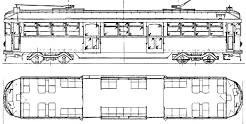
756 w trams were built, until 1956.
only in 1980 new trams were installed, including class b and d and e.
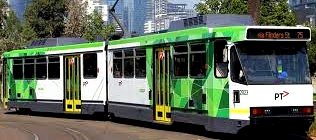
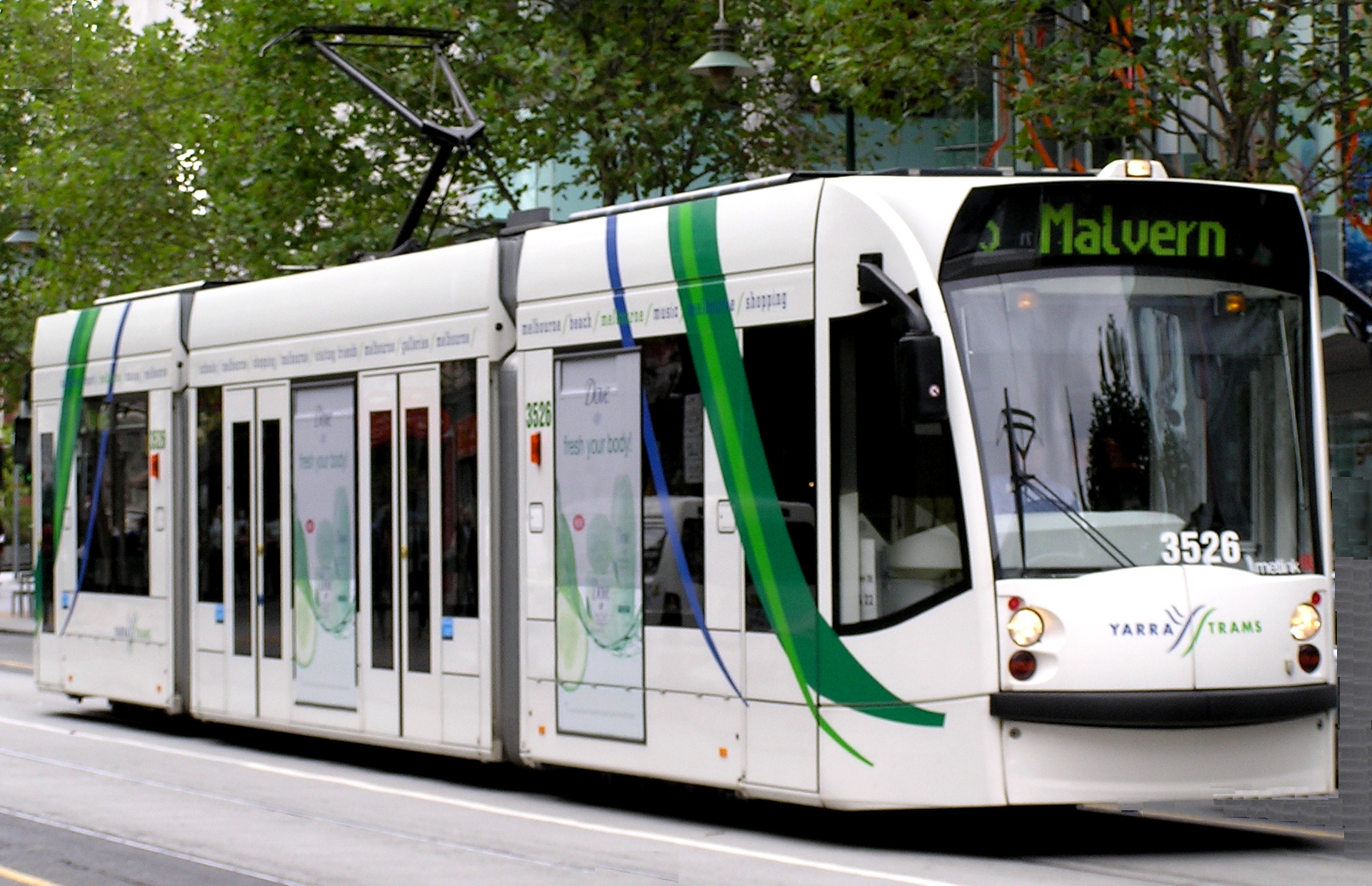
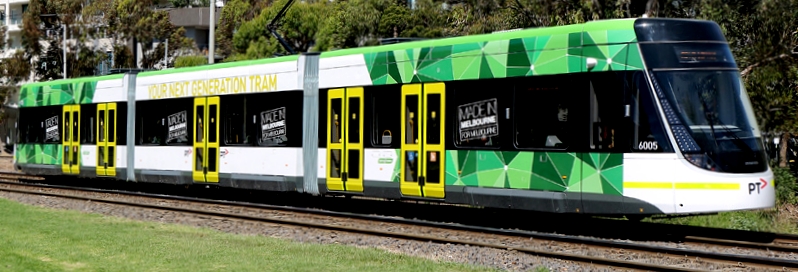
technical data of melbourne's main trams
| tram | length | width | height | motor | seats |
| w | 14.1 | 2.7 | 3.2 | four 30 W | 52 |
| b | 23.6 | 2.6 | 3.7 | two 195 W | 76 |
| e | 33.4 | 2.7 | 3.7 | six 84 W | 64 |
an unusual sign for how much trams mean for melbourne: in 1978 the project "melbourne art trams" began, and 36 trams were painted by all sorts of artists. this program is still running.



another unusual feature is the "restaurant tram". it offers dinner and wine and drinks while running through melbourne. and it's a "w" tram!
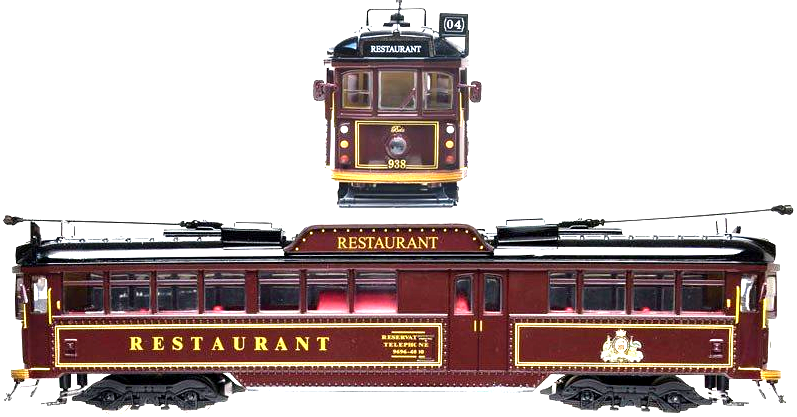

this great opportunity is currently on hold, because of the corona pandemic - but both melbourne fans and tram fans expect that it will come back to life.
indeed - hopefully.
o0o0o size of melbourne's tram system o0o0o
finally - the tram system of melbourne is the largest in the world.
the data regarding the network size of the "top 5" are obvious: melbourne 250km, moscow 208 km, st petersburg 205 k, cologne 198 km, berlin 194 km.
melbourne has 493 trams. the service is organized via 24 routes, with altogether 1763 stops (see map below). passengers in 2018: 205 million.
![]()
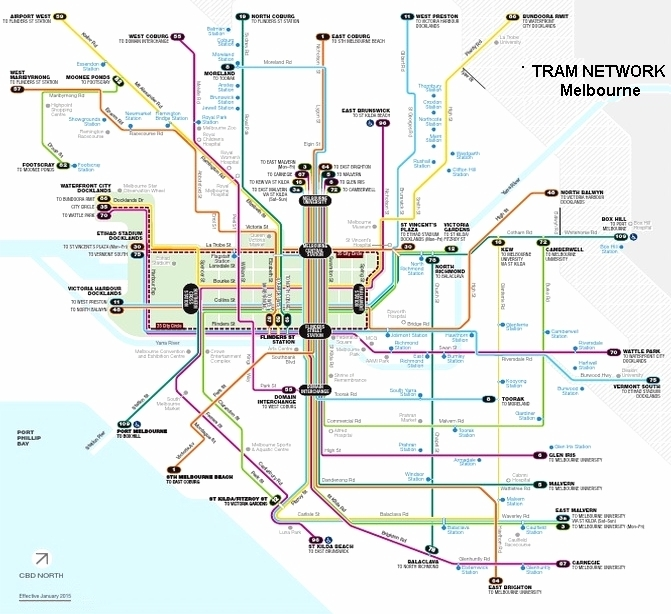
the inner ring (see above map) is around melbourne's cbd district, where 8 tram routes are.
and there is also the "free circle" route. a few historic "w" trams travel there (see map below), and it is free for everyone.
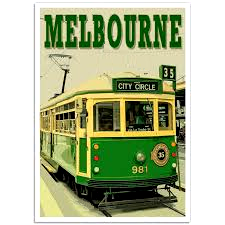
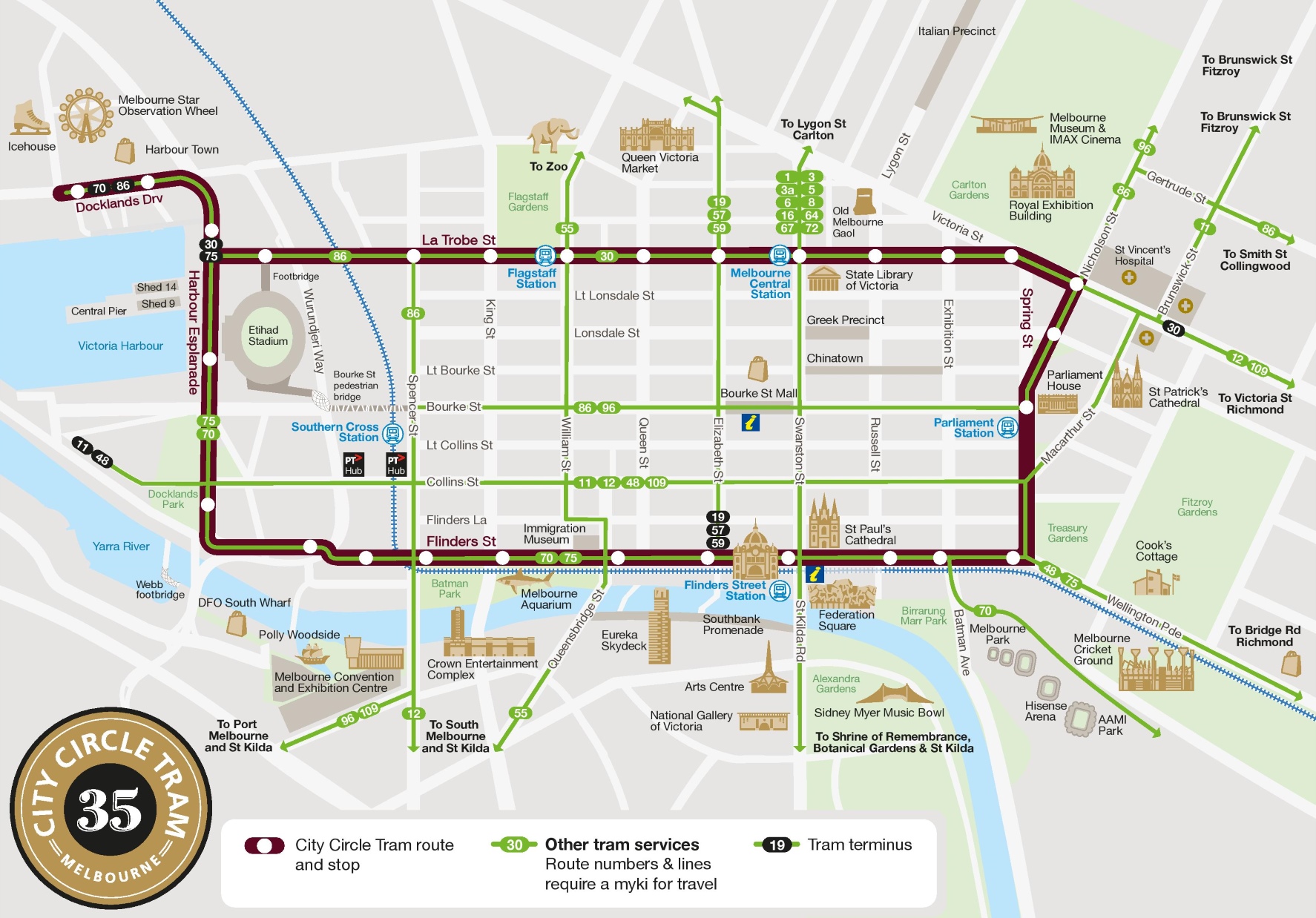
for any visitor to melbourne, australia's largest city, and anyone who has not yet done a tram ride, the "city circle" is a great option. and by the way, it is operating even in corona pandemic times!

o0o0o do trams have a future? o0o0o
from 1881 to 2020, trams have a substantial history of 140 years. and they have become better and better - in efficiency, in safety, in comfort.
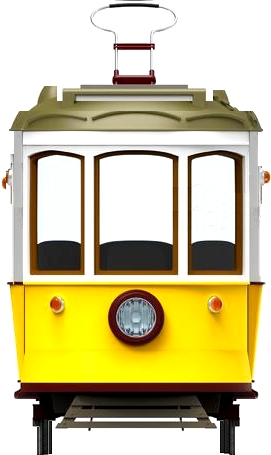
yet critical viewpoints flourish as well - trams are too complex, old-fashioned, inflexible, same-for-all, blocking progress.
some even say: their time is gone, thus trams should be abandoned.

in fact, many cities have decided against maintaining tram networks, e.g., buenos aires, hamburg, jakarta, new york, sydney, vancouver.
so -- do city trams really have good prospects?
![]()
well, yes, me, the melbournian, is of course biased..true, trams provide the impression of being behind with progress. yet there are lots of "pro" arguments - here are the main ones:
- modern trams are comfortable and safe.
- large streets can handle both, car traffic and tram traffic.
- trams are equivalent to about 50 cars, space-wise.
- articulated trams can carry up to 300 passengers.
- altogether, trams are cheaper to run than trains.
- tram lines can be built within cities, railways can't.
- differently to buses, trams cannot accidently run into sideways.
- trams are not always punctual - yet still better than buses.
- a city's tram network is rigid yet firm and easy to know.
- in ecological terms, trams are far better than buses, let alone cars.
my conclusion: yes -- because melbourne trams do have future!

surely it is "yes" in the city with the world's biggest tram network, where trams have character!
>>>>>>>>>>>>>> 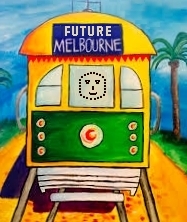 <<<<<<<<<<<<<<
<<<<<<<<<<<<<<
